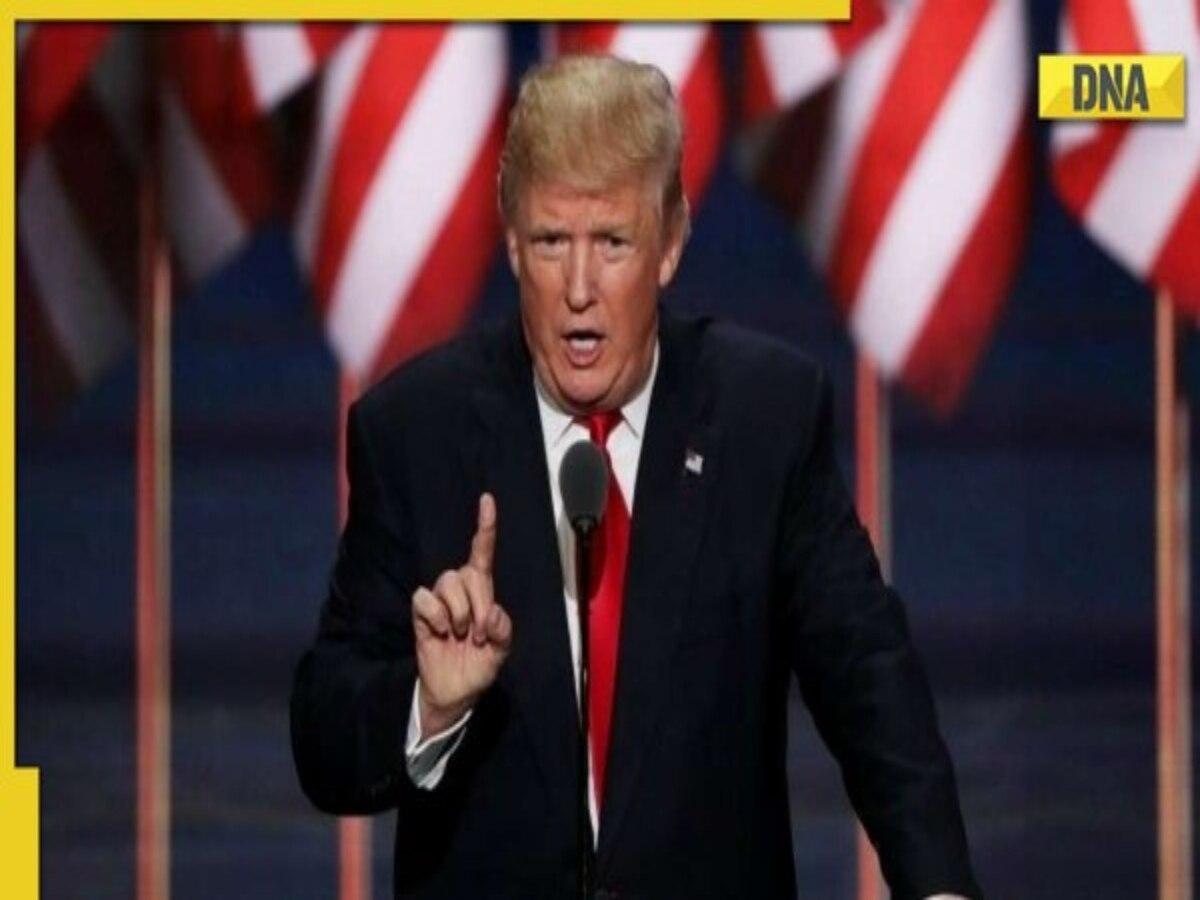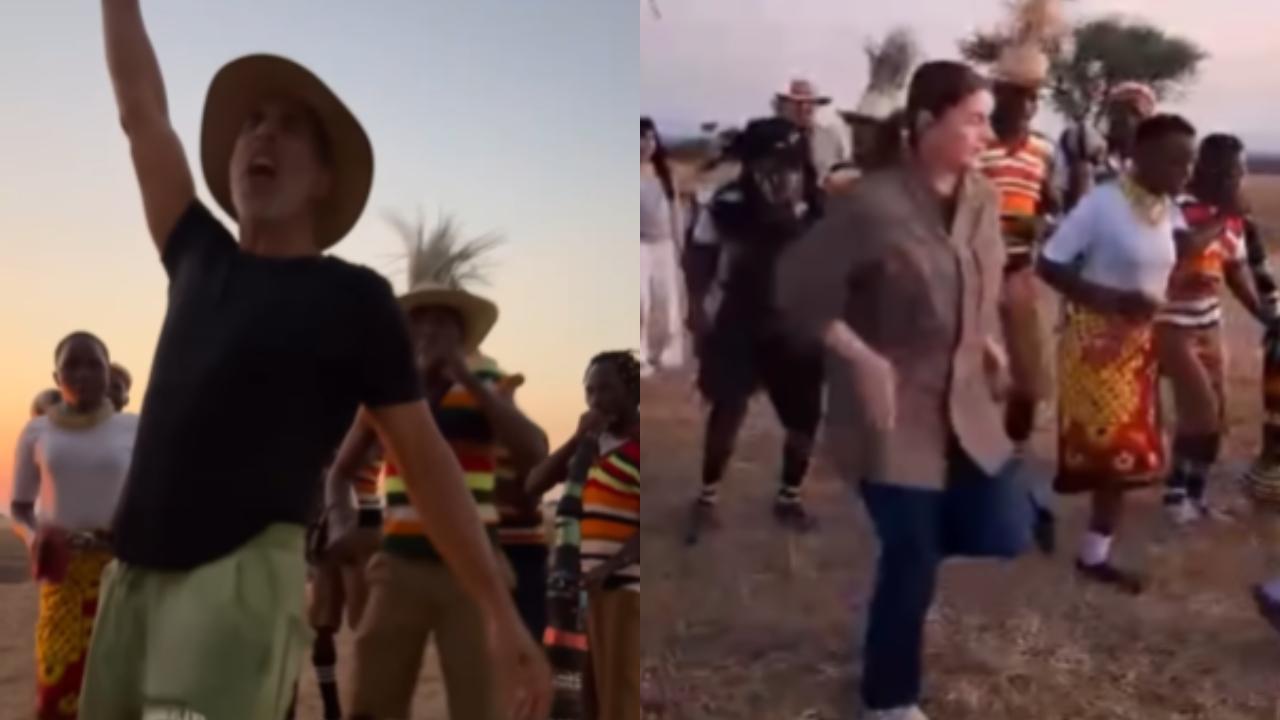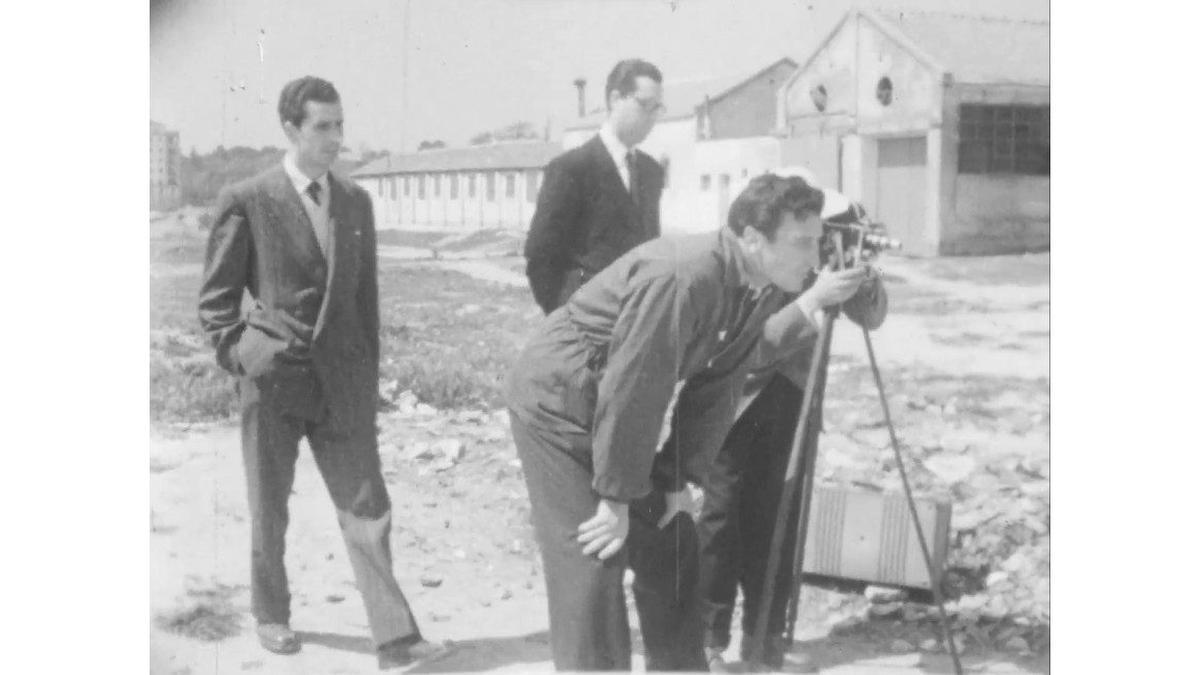
Donald Trump has become the first former president in the history of the United States to face felony charges. A New York jury recently found him guilty on multiple counts of falsifying company records, with the intent to influence the 2016 presidential election. The charges stemmed from hush money payments made to a porn star, who alleged she had a sexual encounter with Trump. Felony convictions are serious criminal offenses that can include acts like murder, rape, and armed robbery, typically punishable by more than a year in prison.
After a marathon deliberation session that lasted 9.5 hours, the jury unanimously convicted Trump on all 34 counts. Trump, seated in the courtroom, maintained an emotionless demeanor as the verdict was read. The judgment represents a significant legal defeat for the former president and carries the potential of prison time. This development is especially significant in New York City, where Trump first captured public attention as a real estate mogul before transitioning to a reality TV star and, ultimately, President of the United States.
As Trump gears up for another presidential run in this year’s election, the implications of the ruling have forced voters to reassess their views on his controversial behavior. Trump is expected to file an appeal shortly, but as a convicted felon, his campaign faces a myriad of challenges. At present, there are no campaign rallies scheduled. However, Trump is expected to initiate fundraising activities in the coming week. It may take several months for the presiding judge, Juan Merchan, to determine if Trump will serve prison time.
Charges of falsifying corporate records can carry a sentence of up to four years in prison. However, it’s unclear if the district attorneys will push for incarceration or if the judge will impose such a penalty, especially given his earlier warnings of jail time for violations of gag orders—measures intended to preserve the fairness of trials by limiting public discussion of case details.
Despite the felony conviction and the prospect of potential imprisonment, Trump’s legal status does not bar him from running for president. He still faces three additional criminal charges, but the New York case stands as the only one likely to reach a conclusion before the November election, making its outcome particularly pivotal. While the legal ramifications are evident, the political impact remains uncertain. The verdict is likely to solidify existing opinions about Trump rather than sway new voters.
In the case of most political candidates, a criminal conviction could spell the end of their careers. However, Trump’s political trajectory has proven remarkably resilient, surviving two impeachments, numerous sexual misconduct accusations, investigations into Russian election interference, efforts to overturn an election, and a widely publicized scandal involving a recording in which he boasted about sexually assaulting women.
Moreover, the allegations concerning hush money payments have been public knowledge for years.
. Though sensational, these accusations are deemed less severe compared to the potential charges Trump faces in the other three cases, which include undermining American democratic processes and mishandling sensitive national security documents.
Nevertheless, the conviction provides political fodder for both sides. President Joe Biden and the Democratic Party are likely to argue that Trump’s criminal status renders him unfit for office. Conversely, Trump and his supporters claim the legal actions against him are politically motivated attempts to derail his campaign.
Throughout the trial, Trump steadfastly maintained his innocence, condemning the case as unfounded and receiving fines for violating a gag order by making inflammatory remarks about witnesses outside the courthouse. Prominent Republican figures stood by him during the trial, reinforcing his claims of being unfairly targeted.
The trial, with its high stakes and public scrutiny, was an unprecedented challenge for the American legal system. Despite Trump’s relentless rhetorical attacks on the proceedings and participants, the 12-person jury dismissed his attempts to discredit the trial. Over a span of four weeks, the trial featured dramatic testimonies and reenforced controversial episodes from Trump’s past.
Among the most discussed moments of the trial was the testimony regarding Trump’s infamous 2016 campaign threats, including the ‘Access Hollywood’ tape. Trump’s legal team argued that the hush money was motivated by personal, rather than political, concerns, aimed at protecting his family’s reputation.
Michael Cohen, Trump’s former lawyer and the prosecution’s primary witness, provided critical testimony, claiming that Trump was fully aware of the hush money negotiations. Cohen’s recordings disclosed conversations about a $150,000 payment to Karen McDougal, a Playboy model who alleged an affair with Trump. Meanwhile, Keith Davidson, the lawyer who arranged the hush money deals, described the fraught negotiations to buy the silence of both women involved.
Stormy Daniels, the porn star at the heart of the case, described her alleged encounter with Trump during a golf tournament. David Pecker, former publisher of the National Enquirer, also testified, outlining how he helped suppress negative media reports about Trump’s 2016 campaign.
Cohen’s testimony established a direct link between Trump and the illegal activities, detailing conversations where Trump instructed payments to be concealed as legal expenses. Cohen, who fell out with Trump in 2018 and decided to cooperate with investigators, expressed regret over his actions, saying he went against his morals.
The verdict validates Manhattan district attorney Alvin Bragg’s assertion that the case was centered on electoral tampering rather than simple hush money payments. The case, despite being deemed the weakest of the four Trump is facing, gained significance as the first to go to trial.
The other three ongoing investigations, involving efforts to alter the 2020 election results and mishandling classified records, are being slowed by legal complexities and appeals. These cases remain pending and could further influence the political landscape as the 2024 election approaches.










